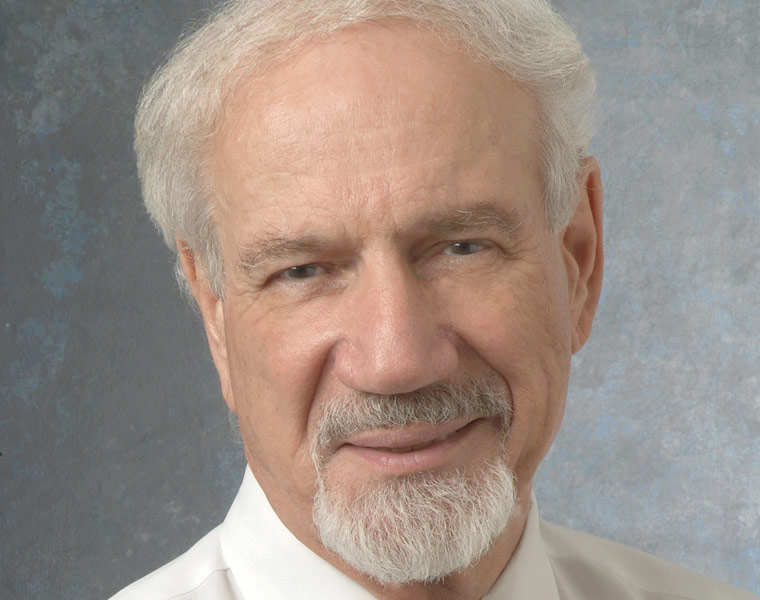For those who have stopped by Adel “Tony” Saada’s office over the years, the visit has felt like stepping into a small museum of his academic life. Bookshelves and filing cabinets lined the walls and housed aging notebooks filled with lecture notes on subjects like elasticity theory from Saada’s years at Paris-Saclay University’s Centrale Supélec Ingenieur, a top French graduate engineering school, and Princeton University. They sat alongside stacks of textbooks dating back to 1955, while relics from Saada’s career—including a congratulatory card from fellow department chairs on his appointment to chair the Department of Civil and Environmental Engineering in 1978—filled his desk.
These momentos began to accumulate when Saada joined the faculty at Case Institute of Technology in 1962. And now, they’ll join him in retirement as the professor of civil engineering transitions to become an emeritus professor following 60 years of service to the university.
During Saada’s decades at CWRU, he chaired his department for 20 years and established a program focused on construction management and geotechnical engineering. To support the new program, he played an integral part in the fundraising for what became the $1.2 million Saada Family Geotechnical Engineering Laboratory.
As an expert in geomechanics, constitutive models and experimental mechanics, he pioneered widely cited research on characterizing the physical properties of soils and applying fracture mechanics to soil’s behaviors. And in the classroom, he taught both foundations engineering and elasticity theory and applications while serving as a valuable mentor to students.
“Professor [Saada] wanted to explain to the class that nobody is worth your integrity as a person,” Marshall Hampton (CWR ‘08) said. “I remember leaving the conversation with the expectation that you can tell anyone ‘no’ when it jeopardizes your integrity and character. I have remembered that during moments in my personal and professional lives.”
Saada has made sure his legacy and the important research he started continues beyond his time on campus through the Saada Family Fellowship Fund. This fund, established in 2000, provides two to three fellowships per year to students pursuing a PhD in civil engineering. Since its inception, it has provided $1.2 million in support to students.
“We are grateful for the decades of service Tony has given,” Venkataramanan “Ragu” Balakrishnan, the Charles H. Phipps Dean of the Case School of Engineering, said. “Through his generous support, students in the Department of Civil and Environmental Engineering will continue to make discoveries in geotechnical engineering for years to come.”

